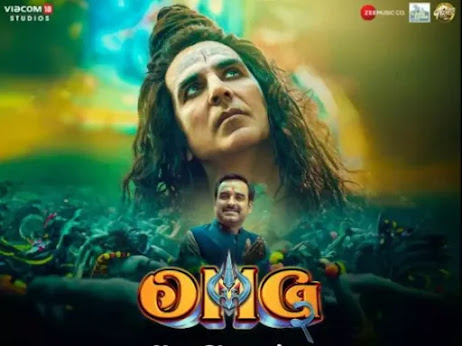OMG 2: A Mental Health Perspective on Adolescence, Sexuality, and Misconceptions
The Struggles of Adolescence: A Reality Check
The adolescent years are often marked by a turbulent mix of physical, emotional, and psychological changes. OMG2 portrays the journey of a young boy grappling with these complexities, including bullying, confusion about his physical and sexual growth, and the guilt surrounding masturbation. These themes are not just fictional; they are real struggles that many young people face as they navigate the challenging years of their teenage life.
In the film, the boy becomes overwhelmed by societal misconceptions and taboos about masturbation. He's led to believe that engaging in such acts will result in impotence, a smaller penis, or that he'll lose vital energy that will weaken him. These irrational fears often spiral out of control, leading the teenager into a state of depression, social isolation, and in the most tragic cases, thoughts of suicide. The film captures these emotions with a rawness that is difficult to ignore, offering a lens through which we can see the damaging effects of ignorance and stigma on mental health.
The Taboo Around Masturbation: A Barrier to Understanding
Masturbation is one of the most common sexual activities, yet it remains shrouded in taboo, guilt, and shame, particularly for young people. As depicted in OMG2, this stigma creates confusion, leading adolescents to seek answers from unreliable sources such as online pornography or self-proclaimed experts, often reinforcing their fears and insecurities. Rather than seeking out accurate information or discussing their concerns openly with trusted adults, many teens internalize these worries, isolating themselves further.
As a result, the misconceptions about masturbation continue to grow. Adolescents may believe that their sexual development is stunted or that masturbation will lead to undesirable consequences. These false beliefs create a vicious cycle of anxiety, shame, and self-doubt, which can ultimately contribute to more serious mental health issues such as depression or suicidal thoughts.
Mental Health Consequences: More Than Just a Reel Life Story
The experiences depicted in OMG2 are unfortunately not unique to the movie. In reality, many adolescents are struggling with these issues on a much larger scale, often in silence. The confusion, isolation, and fear about their bodies and sexuality can have profound mental health consequences. These issues don't just stay in the realm of curiosity—they can lead to severe consequences, including depression, self-harm, or even suicide. It's crucial that we recognize these struggles and address them in a more open and supportive manner, rather than ignoring them or letting them fester in the darkness.
Breaking the Silence: What Parents Can Do
As parents, it's important to create an open and non-judgmental space for adolescents to express their fears and questions. In OMG2, the boy's suffering could have been alleviated had he been able to talk openly with his parents about his concerns. Parents need to be more approachable, especially when it comes to sensitive topics like sexual development. Instead of imposing shame, parents can help to normalize the discussion around masturbation, sexual growth, and mental health, assuring their children that it's okay to explore these topics and that they don't need to suffer in silence.
It’s essential to educate teens that masturbation is a natural part of human sexuality and doesn't lead to the negative consequences they may fear. Furthermore, addressing the emotional and mental challenges these adolescents face, such as bullying, can go a long way in ensuring their mental well-being. It's time we move away from outdated taboos and embrace more informed, compassionate conversations.
The movie OMG2 brilliantly captures the struggles of adolescence, particularly surrounding the confusion and mental health issues caused by the stigmas around masturbation and sexual growth. But beyond the reel, it's a poignant reminder that these issues are very real, and they affect millions of young people today. As a society, it's time to stop silencing these struggles and begin open, supportive conversations. Parents, educators, and mental health professionals need to take a proactive role in addressing these topics with understanding and care.
If you liked this article, please consider liking, sharing, and following our page. Let's continue to spread awareness and create a healthier environment for our adolescents. Har Har Mahadev!


Comments
Post a Comment